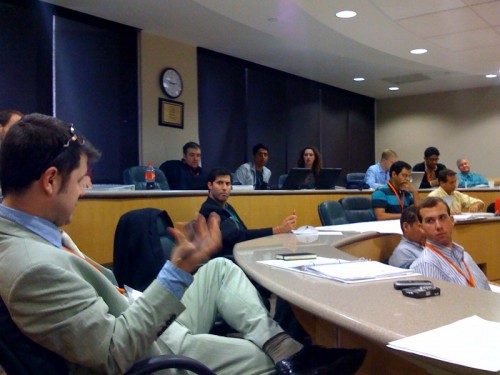The workshop I attended this afternoon at the WedMedia conference broke us up, randomly, into small groups of 5-7 people where we discussed the future, and the ways that technology and society are changing these 5 main areas:

- Business
- Government
- News and Media
- Education
- Philanthropy

News and Media Focus
My group was tasked with News and Media, specifically, "How do you inform and engage a large audience in the big issues of our time?" It was a good group too, with Ellen Hume of MIT, Alan Connor of the BBC, Erik Sundelof of AllVoices and others. This ended up being a really good discussion, with just the right types of people to explore both traditional and new media trends. Big items that we discussed:Who decides what is important news, who is this mediator of what is important and why? Localization and making things important to people at an individual level. The question here is how do you penetrate my inability to pay attention, to even understand what might be important to me? Recognize that there is a distributed information flow growing, where everyone has a voice. There are multiple channels, modes and perspectives. Credibility ranking of incoming news will become more important. Trust ranking, veracity and probability of truth. There is an increasing feeling of helplessness from this river of bad news that flows at us all the time ("if it bleeds it leads"). Can we create actionable items from this, so that people aren't helpless? What are the new funding models? Will we go the state sponsored way of the BBC in the future?One item that we completely missed: we talked about everything from a very Western-centric point of view, completely glossing over the largest part of the worlds population and how they will add to and consume news.